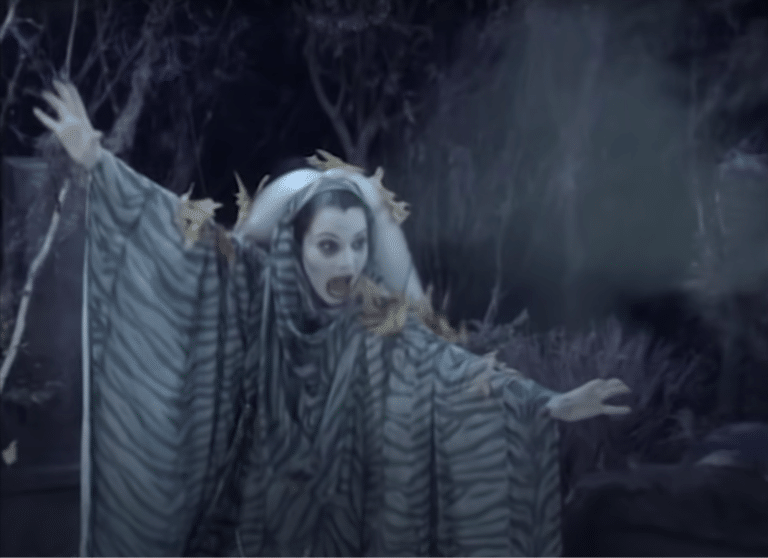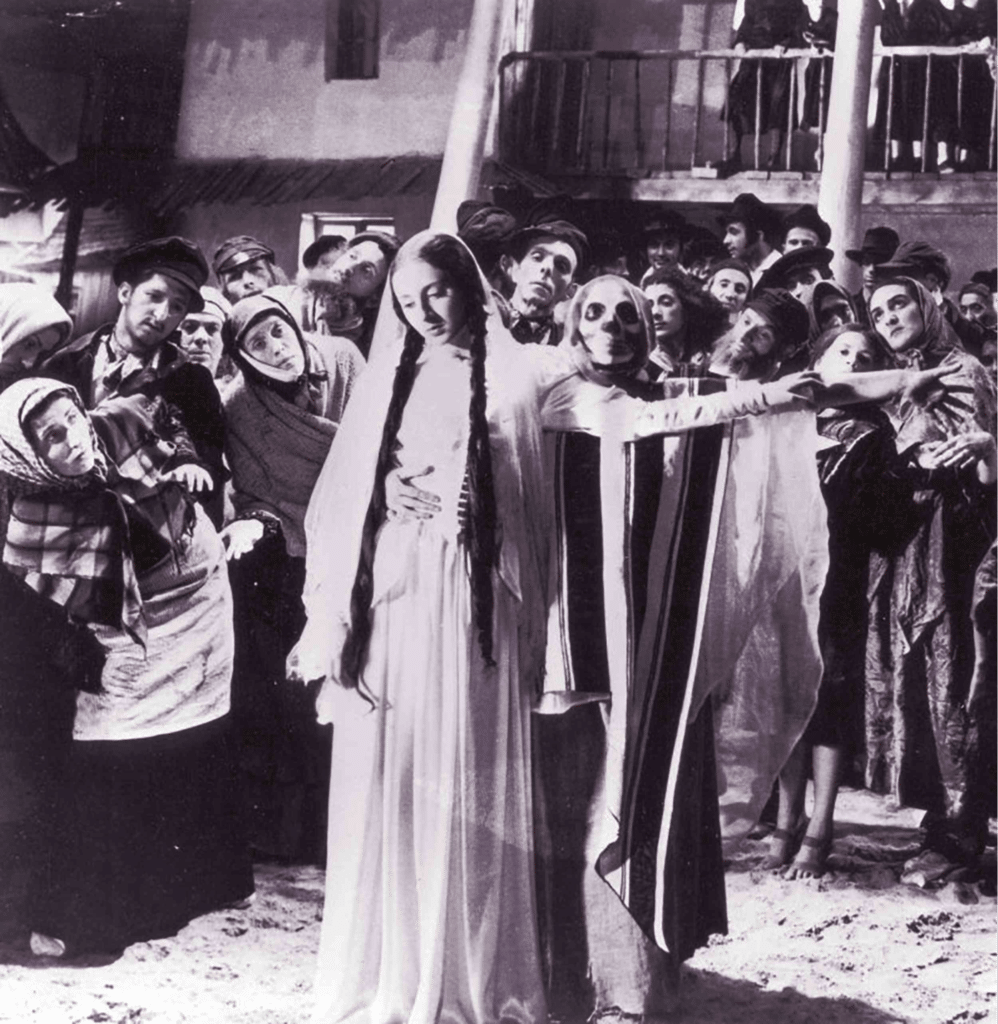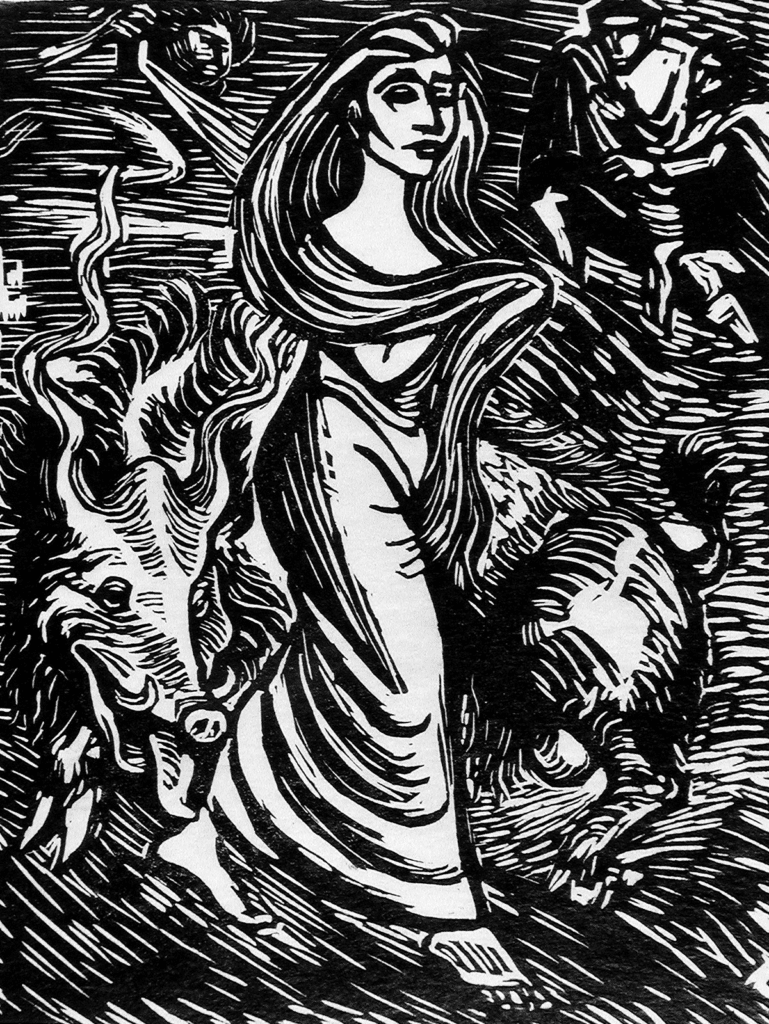
Jews can be a superstitious bunch for sure — we protect ourselves against the evil eye and don’t sit at table corners as single women for fear we’ll never get married; but when it comes to the supernatural, you don’t hear too many Jewish stories around ghost and goblins and ghouls (oh my).
I’m here to change that, because as it turns out, there exists quite the archive of devilish Jewish folklore– here are some of my favorites:
Note: Much of Jewish demonology isn’t rooted in Jewish text (i.e. meaning they aren’t part of the 24 books of Tanach and instead originate from apocryphal texts or just tradition and culture) Much like ghost stories of old, these aren’t meant to be taken too seriously… but why let that spoil our spooky fun?
Dybbuks and Ibburs
Let’s dive right in with possession. A dybbuk (from the Hebrew “to stick”) is an evil disembodied spirit who, because of sins committed while alive, is forced to wander restlessly and only finds refuge once able to attach itself to a physical host. Its presence causes mental illness and changes to one’s personality.

In stark contrast, an ibbur is always a positive possession and is most commonly associated with righteous individuals whose possessions are in an effort to do a mitzvah, complete a task or fulfill a promise (kind of like a “Jewish Casper,” if you will).
The dybbuk is one of the few Jewish folktales to make it to the mainstream and has become quite popular in film, television and literature. One of my favorite examples is the opening scene of “A Serious Man” by the Cohen brothers.
You may have also heard about the Dybbuk Box. Spoiler alert- it turned out to be a hoax, but my oh my is it a wild ride.
Golems

Golems are formed from clay (like dreidels) and controlled by man (like Frankenstein). Jewish tradition typically describes it as a creature created by a rabbi who, with the use of G-ds name, quite literally breathes life into it. Perhaps the most famous story is the Golem of Prague who was formed to defend the community from pogroms (antisemitic attacks).
Or, maybe it’s this one- who can say for sure?:
Witches and Ghosts

Storytime- stop me if you’ve heard this one:
King Saul banishes (1 Samuel 28:3) all the practitioners of black magic, except (for some reason) a few of them who he lets stay behind in Endor (yes, this is where it comes from!) Desperate for guidance about his upcoming battle with the Philistines, he decides his only option is to consult the dead so off he goes to find a witch who claims to speak with ghosts. Turns out she totally can and conjures Samuel who then complains (I told you it was Jewish) of being disturbed, berates the king and then predicts his downfall… the end, I guess.
Speaking of ghosts, take a look at this story of a group of demon ghosts who go to court in an effort to stay living in the basement they call home. It sounds like the plot of a kooky sit-com and honestly, I’d watch the heck out of it.
Lillith

Lillith (Adam’s alleged wife before Eve) gets her own category because depending on the source you are reading, she might be described as a witch, possibly as a vampire of sorts or sometimes as your run of the mill ‘she-demon.’ The story I know is as follows:
According to the lore, Lillith and Adam were created at the same time and from the same earth (unlike Eve, who was created from Adam’s rib). Lilith refused to be subservient and left Adam. When asked to return, she refused and got with (wink wink) the “Great Demon,” Samael instead. Believed at first to be a succubus, her character morphed into a kidnapper and child murderer and represents unchecked sexuality and uncontrollable women.
Curses

Let’s talk about the Pulsa Denura (and no, it has nothing to do with the wildly entertaining Yiddish curses). Thought to be rooted in Kabbalah, the cursed ceremony apparently involves candles, shofars and a minyan of righteous men invoking the names of angels to block the forgiveness of sins. Since the targeted person can’t repent, he falls subject to all the curses in the bible (and there are a lot) and dies. But– twist! If the men who did the cursing aren’t righteous enough, G-d throws down a reverse Uno card and well, you know what that means.
Like I wrote above, you won’t find most of these stories flipping through the Tanach. While the rabbis of yore liked to debate these ideas from sunup to sundown, Judaism doesn’t really place much weight on whether or not these things are true. At most, we are meant to learn a lesson about human behavior; at least, it makes for some spooky fun.
Did we miss your favorite? Let us know what you thought on Instagram, Twitter and Tik Tok!
Originally Published Oct 25, 2021 12:02AM EDT
